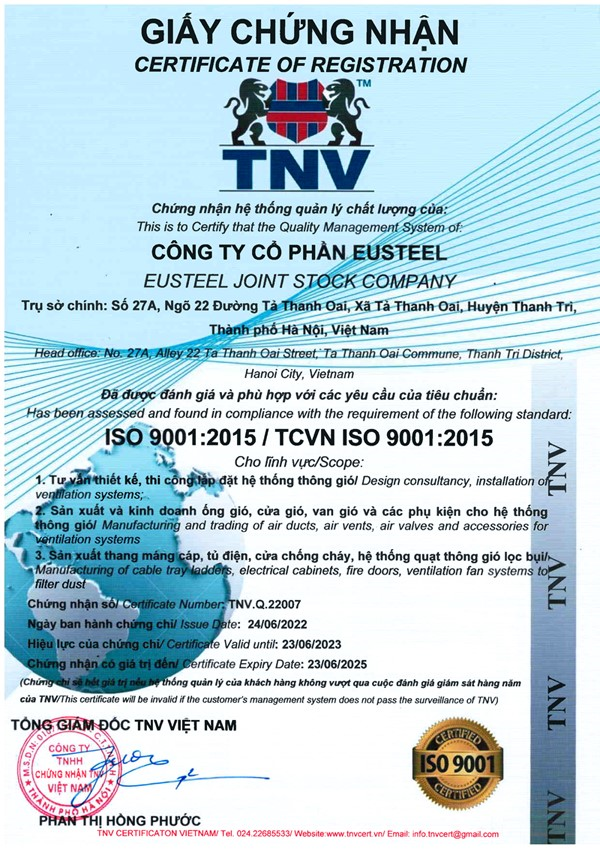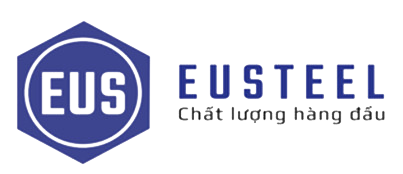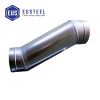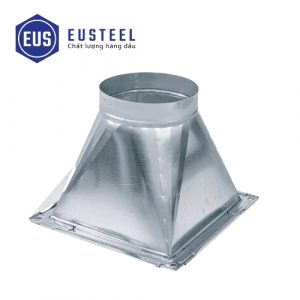Top quality
Concentric round reduecr
Condition: In stock
Origin: Vietnam
Brand: Eusteel
Galvanized steel sheet: Most popular, has good durability and rust resistance, reasonable price.
Stainless steel (stainless steel): Including stainless steel 201, 304, 316. Used in environments that require high durability, absolute corrosion resistance, or environments with strict hygiene requirements (such as food factories, pharmaceuticals, clean rooms).
Aluminum or powder-coated steel: Less common but can also be used in some special applications.
Changing pipe size: This is the most basic use. The concentric round reducer allows for a smooth transition of air or liquid flow from a tube with a large cross-section to a tube with a smaller cross-section, or vice versa (then called the cone).
Adjusting flow and pressure: When reducing the pipe cross-section, the air flow rate often increases, and the static pressure may change. The concentric retractor helps adjust these factors in a controlled manner.
Device connection: Often used to connect air ducts to devices with different inlet/outlet sizes, such as fan headers, air vents, filters, etc.
Flow Optimization: Concentric design and smooth transition minimize gas/liquid flow turbulence, thereby limiting pressure loss and reducing noise.
Save space: Allows more flexibility in duct system design and installation, especially in limited spaces.
Shape: The concentric cone is shaped like a truncated cone or pyramid, gradually tapering from the large end to the small end. The most important feature is that the center axis of the big end and the small end lie on the same straight line.
Size: Diverse, manufactured according to the diameter (for round pipes) or side size (for square/rectangular pipes) of the two pipe sections to be connected.
Material thickness: Typically ranges from 0.5mm to 1.2mm or more, depending on cone size and system pressure.















